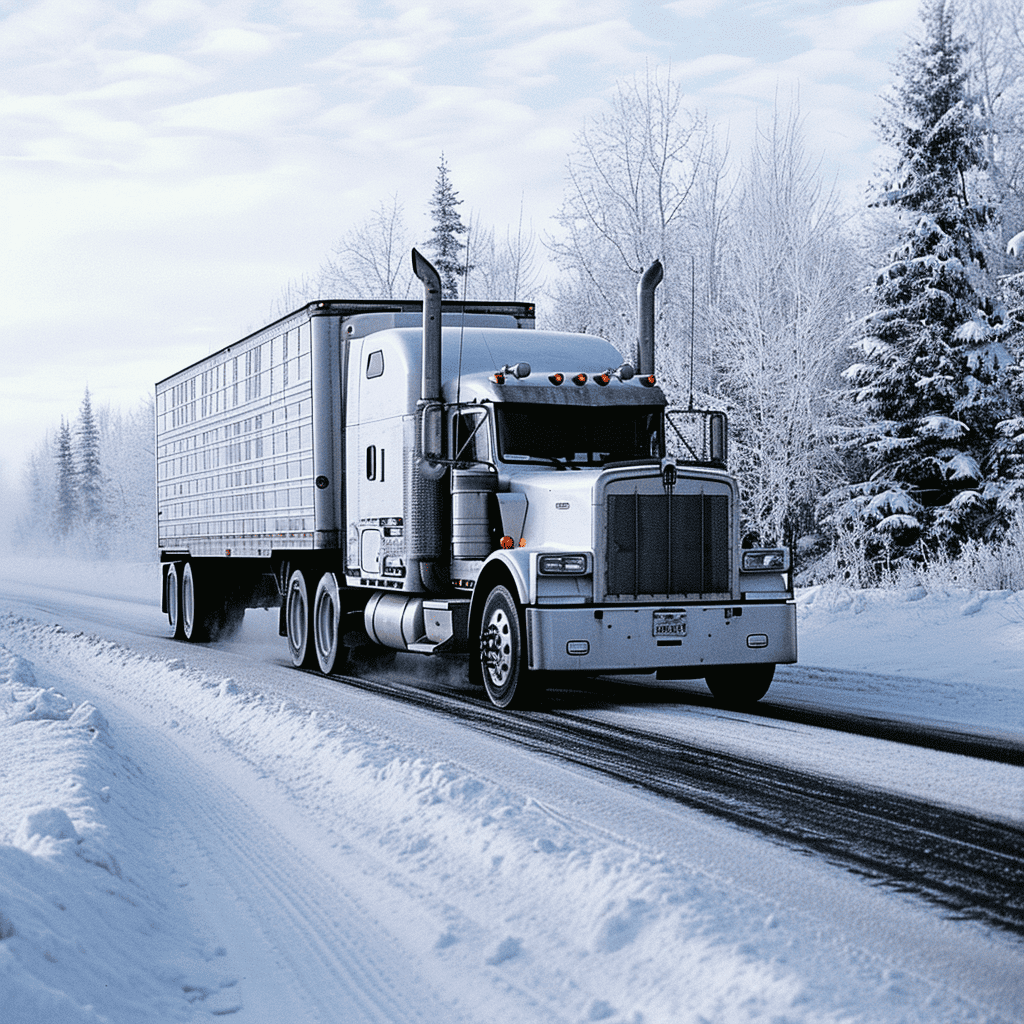Minnesota Truck Weight Limits: Regulations and Guidelines
Freedom Heavy Haul can offer expedited Pickup and Delivery for any size shipment anywhere in the USA. Contact us today for No Hassle, No Pressure Pricing.
Understanding truck weight limits in Minnesota is crucial for the transportation industry, ensuring safety, legal compliance, and the protection of infrastructure. These regulations, varying based on factors like road conditions, vehicle types, and seasonal changes, play a significant role in shaping trucking operations across the state. In this article, you will learn about Minnesota truck weight limits, offering valuable insights for truck operators, fleet managers, and logistic companies. Learn more about ensuring safe and compliant heavy haul transport in Minnesota.
Minnesota Truck Weight Limits and Core Regulations
Overview of Statewide Truck Weight Limits
Minnesota’s statewide truck weight limits are primarily designed to balance the demands of transportation with road safety and preservation. The standard maximum gross weight limit stands at 80,000 pounds, subject to the distribution across axles to prevent road damage. This regulation helps in maintaining road integrity and ensuring that vehicles adhere to safe weight limits.

Understanding Axle Weight Regulations
Axle weight regulations are a key component of Minnesota’s truck weight rules. They stipulate how weight should be distributed across a truck’s axles. This distribution is crucial as it affects vehicle stability, road wear, and safety. The axle weight limit is particularly important during seasonal thaw periods when roads become more susceptible to damage. Stay compliant with axle weight regulations in Minnesota to ensure safe transport.
Seasonal Variations in Regulations
Impact of Spring Thaw on Weight Limits
During spring, Minnesota implements specific load limits to protect its roads during the thawing period. This is when roads are most vulnerable to damage due to the softening of the ground. The state enforces reduced axle weight limits on most roads, with paved roads typically having a 10-ton limit and non-paved roads reduced to 5-ton axle weight limits.
Winter Weight Increases and Restrictions
Conversely, in winter, Minnesota occasionally allows increased weight limits to accommodate the frozen ground conditions. These seasonal weight increases are carefully regulated and are subject to timely announcements by the state authorities. It is essential for truck operators to stay informed about these seasonal changes to ensure compliance. Partner with us for safe and compliant heavy haul transport in Minnesota during winter conditions.
Special Vehicle Categories
Weight Regulations for Agricultural Vehicles
Agricultural vehicles, or Implements of Husbandry, have specific weight exemptions and limits in Minnesota. While generally exempt from standard weight limits, there are restrictions based on tire width and the type of vehicle, particularly for non-self-propelled vehicles with pneumatic tires. We ensure safe and compliant transport of agricultural vehicles across Minnesota.

Rules for Construction and Industrial Equipment
Construction and industrial equipment also have distinct weight regulations. Given their varying sizes and functions, these vehicles are often subject to special permits and conditions to ensure they do not exceed safe weight limits or cause undue road wear.
Oversize and Overweight Loads
Permits and Requirements for Oversize Loads
Oversize and overweight loads in Minnesota require special permits. These loads are typically those exceeding the standard width, height, or weight limits. The permits stipulate specific routes, travel times, and necessary escort vehicles, ensuring safety for both the oversize load and other road users.
Safety Protocols for Transporting Heavy Loads
Transporting heavy loads in Minnesota involves adhering to stringent safety protocols. This includes using appropriate warning signs, flags, and lights to enhance visibility. The state mandates specific requirements for the placement of these signs and lights to ensure they are visible and effective in alerting other motorists. Ensure safe transport with our heavy haul services in Minnesota.
Operational Considerations
Navigating Through Weight Stations and Checkpoints
Truck operators must navigate through weight stations and checkpoints where vehicles are inspected for compliance with weight regulations. These stations play a critical role in enforcing weight limits and ensuring that trucks traveling on Minnesota roads adhere to legal standards.
Role of Technology in Weight Compliance
Advancements in technology have significantly aided in weight compliance. Tools like weigh-in-motion systems and electronic logging devices help truck operators and enforcement agencies in monitoring and maintaining compliance with weight regulations, enhancing road safety and operational efficiency.
Compliance and Enforcement
Legal Implications of Overloading
Overloading trucks can lead to serious legal implications, including fines, penalties, and in severe cases, suspension of operating licenses. It’s imperative for truck operators to understand and adhere to these weight limits to avoid legal repercussions and ensure the safety of their operations.

State Enforcement Practices and Penalties
Minnesota employs rigorous enforcement practices to ensure compliance with truck weight regulations. These practices include random checks, permanent weigh stations, and the use of portable scales. Penalties for non-compliance are significant and are intended to deter overloading and protect state roads. Ensure safe and compliant transport with our heavy haul services in Minnesota.
Government Resources for Truck Operators
Minnesota offers a range of resources, including comprehensive guides, regulatory updates, and support services to assist truck operators. These resources are aimed at helping them understand weight limits, obtain necessary permits, and stay informed about any changes in regulations. The Minnesota Department of Transportation (MnDOT) and other relevant state agencies provide online portals, downloadable materials, and contact points for queries and clarifications.
Educational and Training Programs
Educational and training programs are also available for truck operators and fleet managers. These programs cover various aspects of weight regulations, safe trucking practices, and compliance strategies. They are crucial for promoting a culture of safety and legal adherence in the trucking industry.
Conclusion
In conclusion, understanding and adhering to Minnesota’s truck weight limits is essential for the safety, legality, and efficiency of trucking operations. These regulations are designed to protect the state’s road infrastructure and ensure the safety of all road users. Staying informed and compliant with these rules is not only a legal obligation but also a critical aspect of responsible trucking. Contact us to learn more about ensuring safe and compliant heavy haul transport in Minnesota.







